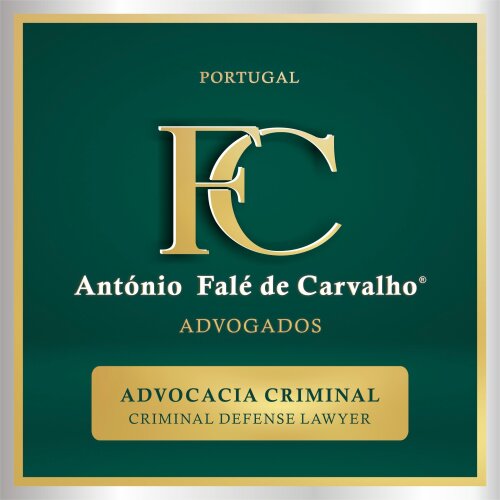Best White Collar Crime Lawyers in Lisbon
Share your needs with us, get contacted by law firms.
Free. Takes 2 min.
List of the best lawyers in Lisbon, Portugal
About White Collar Crime Law in Lisbon, Portugal
White Collar Crime law in Lisbon, Portugal refers to non-violent crimes typically committed by individuals or businesses in high-status professional roles. These crimes are characterized by deceit, breach of trust, and concealment rather than the use of force or physical violence. Common white collar crimes in Lisbon include embezzlement, bribery, fraud, insider trading, and cybercrime. These are perceived as sophisticated crimes involving complex legal issues and often have cross-border implications.
Why You May Need a Lawyer
Given the complex nature of these crimes, hiring a lawyer that specializes in white collar crime is essential for those accused. An experienced lawyer can navigate through the legal system, ensure right protection, and devise the best defense strategies. Individuals or businesses being investigated or charged with white collar crimes are strongly advised to seek help from legal professionals. Similarly, victims of such crimes may also benefit from consulting a lawyer to recover financial losses.
Local Laws Overview
The Portuguese Penal Code outlines the punishments for various forms of white collar crimes, usually in the form of hefty fines or imprisonment. Portugal is also part of various international legal frameworks aimed at combatting white collar crime, such as the OECD Anti-Bribery Convention. Moreover, certain regulatory bodies on the national level like the Securities Market Commission (CMVM) enforce regulations to prevent and punish financial frauds and other related crimes. The complex landscape of these regulations requires specialized knowledge to understand accurately.
Frequently Asked Questions
What is the legal definition of white collar crime in Portugal?
There's no specific legal definition of white collar crime in Portugal. However, it typically refers to non-violent, financial crimes committed by business and government professionals.
What are the penalties for white collar crimes in Portugal?
The penalties can vary depending on the nature and severity of the crime. They typically include imprisonment, fines, restitution to victims, and forfeiture of gains derived from the crime.
What are the defenses to charges of white collar crimes?
Common defenses can include lack of intent, duress, entrapment, incapacity, or challenging the validity of evidence gathered. A good lawyer can help tailor a defense strategy to the specific situation.
Can victims of white collar crimes recover their losses?
Yes, victims can often recover their losses through civil litigation and restitution orders which require criminals to pay back their ill-gotten gains.
Are white collar crime cases made public in Portugal?
Typically, white collar crimes are prosecuted publically. However, certain aspects of an investigation may remain confidential until the case is closed.
Additional Resources
People in need of further assistance can contact the Public Prosecutor's Office of Lisbon or the Portuguese Ministry of Justice. The OECD's review on anti-bribery measures in Portugal is also a valuable source of information.
Next Steps
If you require legal assistance, your first step should be to research and contact an experienced lawyer who specializes in white collar crimes. Ensure you fully understand your situation and seek legal advice at the earliest possible stage. Remember, hiring a competent lawyer is crucial when dealing with such complex matters.
Lawzana helps you find the best lawyers and law firms in Lisbon through a curated and pre-screened list of qualified legal professionals. Our platform offers rankings and detailed profiles of attorneys and law firms, allowing you to compare based on practice areas, including White Collar Crime, experience, and client feedback.
Each profile includes a description of the firm's areas of practice, client reviews, team members and partners, year of establishment, spoken languages, office locations, contact information, social media presence, and any published articles or resources. Most firms on our platform speak English and are experienced in both local and international legal matters.
Get a quote from top-rated law firms in Lisbon, Portugal — quickly, securely, and without unnecessary hassle.
Disclaimer:
The information provided on this page is for general informational purposes only and does not constitute legal advice. While we strive to ensure the accuracy and relevance of the content, legal information may change over time, and interpretations of the law can vary. You should always consult with a qualified legal professional for advice specific to your situation.
We disclaim all liability for actions taken or not taken based on the content of this page. If you believe any information is incorrect or outdated, please contact us, and we will review and update it where appropriate.










